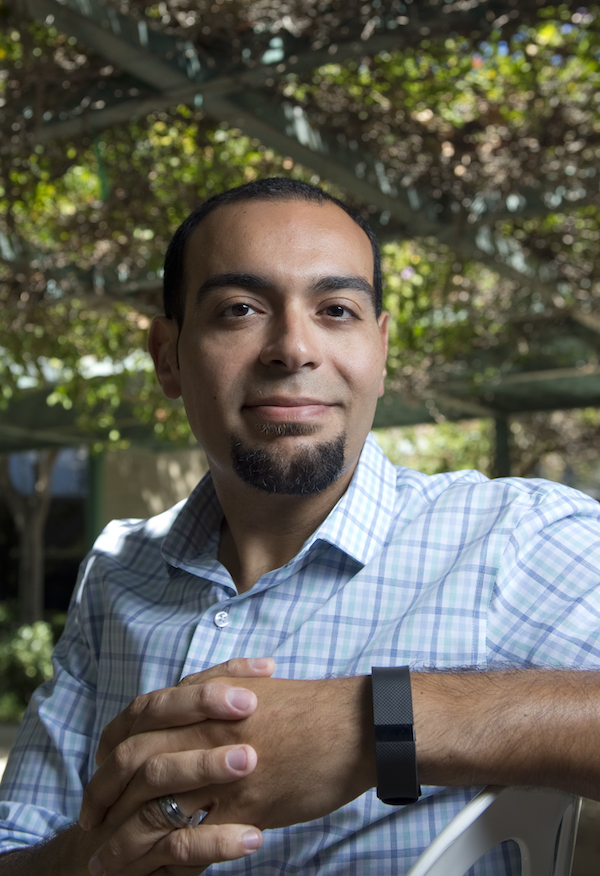
Director Michael A. Yassa, Ph.D.
Pronouns: He/Him/His
Associate Dean
Office of Diversity, Equity and Inclusion
School of Biological Sciences
Professor
Department of Neurobiology and Behavior
Department of Neurology
Department of Psychiatry and Human Behavior
Department of Psychological Science
Director
Center for the Neurobiology of Learning and Memory
Director
UCI Brain Initiative
Research Interest
Courses
Teaching Philosophy
Contact
My laboratory is interested in how the brain learns and remembers information, and how learning and memory mechanisms are altered in aging and neuropsychiatric disease. The central questions in our research are:
We combine these approaches with more traditional psychophysics including measurements of galvanic skin response (skin conductance), heart rate variability, and eye tracking. We are also working with collaborators to develop novel platforms for cellular resolution functional imaging in awake, behaving animals using novel MRI tracers. Finally, we are actively developing and testing several pharmacological and nonpharmacological cognitive enhancement interventions in older adults at risk for dementia, including studies of physical exercise.
- What are the neural mechanisms that support learning and memory?
- How are memory circuits and pathways altered in the course of aging, dementia, and neuropsychiatric disorders such as depression and anxiety?
- How can we identify early preclinical biomarkers that can distinguish between normal and pathological neurocognitive changes so that we can better design diagnostic and therapeutic tools.
We combine these approaches with more traditional psychophysics including measurements of galvanic skin response (skin conductance), heart rate variability, and eye tracking. We are also working with collaborators to develop novel platforms for cellular resolution functional imaging in awake, behaving animals using novel MRI tracers. Finally, we are actively developing and testing several pharmacological and nonpharmacological cognitive enhancement interventions in older adults at risk for dementia, including studies of physical exercise.
Winter:
- BIO SCI N137 – Human Neuropsychology (Undergraduate) – A survey of human brain disorders using a clinical case study approach to illustrate fundamental issues in studying brain and behavior. Topics include sensory deficits, attentional neglect, amnesia, cortical organization, clinical psychopathology, and more. Cross listed as PSY BEH 163C and PSYCH 162N.
- NEUROBIO 240 – Advanced Analysis in Learning and Memory (Graduate) – This seminar reviews and discusses selected early as well as current studies concerning an advanced topic in investigations of learning and memory. The topic changes from year to year. In Winter 20216, the topic was The Search for the Engram. In Winter 2015, the topic was Emotion, Arousal, and Memory.
- Setting expectations: I clearly outline my expectations early in the quarter. I strongly believe that if students understand the subject matter and have studied well, they should be rewarded on the day of the exam.
- Interactive lecturing: My lecture approach combines the use of media and demonstrations with real-life examples and stories that make difficult subject matter approachable and relevant. When collections of unrelated facts are presented as just that, they do not stand a chance of being remembered. When bound by a story, however, the facts are much more likely to be understood and remembered. In the classroom, my lecturing style is not unidirectional. I frequently engage in dialogue with my students and often bring new research to bear on the topics discussed. This approach keeps students engaged and focused on the lecture and fosters their critical thinking skills.
- Digital resources: I believe that effective integration of technology into the classroom is critical. My lectures typically include videos, engaging demonstrations, and discussion topics that are likely to be enjoyed in class and later remembered. I also upload supplementary content (videos, study guides, interesting news articles) to the course website to keep motivated students engaged at all times.
- Frequent testing: Testing has mnemonic benefits far beyond knowledge assessment. I have been inspired by the seminal work of Roediger, Paschler and others in this area. My testing approach is to quiz students at the beginning of each lecture and to emphasize frequent testing at home. Quizzes are based on previously learned material. This approach guarantees that there is always overlap across quizzes from week to week, creates a continuous learning experience, encourages students to be well prepared for class and deters them from falling behind.
- Office hours: My office hours are always by appointment and at the student(s) request. I do not hold a regularly scheduled office hour, as this tends to be a waste of time and is only utilized the day before the exam. Instead, I prefer to hold small group or individual meetings by appointment. I am also usually available immediately after class for questions.
